New plans emerge to save many Cape Cod ponds, lakes threatened by pollution
Boston 25 News
By: Vicki Graf
June 23, 2022 at 7:06 am
CAPE COD, Mass. — Although most people think of Cape Cod’s ocean beaches when it comes to recreation, there are 890 freshwater ponds and lakes which are used for swimming, boating, and fishing by residents and tourists.
Development and climate change are combining to upend the delicate ecological balance these bodies of water are straddling right now.
Many of these ponds and lakes are closing more frequently due to toxic algae blooms.
“Shubael Pond has been declining really precipitously over the last few decades,” said Zenas Crocker, executive director of the Barnstable Clean Water Coalition. “There used to be a lot of freshwater mussels. We’ve seen those largely go away.”
Crocker says many of these ponds and lakes are fighting for their life due to algae blooms, “especially cyanobacteria which is problematic, possibly toxic depending on what kind species it is. If a dog licks it, it can die.”
The biggest problem is the region’s reliance on septic tanks to process human waste.
“In some cases, we have development that is really close to our water bodies, and some of our human impacts, we’re really seeing that in the water quality of our ponds,” said Kristy Senatori, executive director of the Cape Cod Commission.
The Barnstable Clean Water Coalition is leading a trial project in the Marston Mills section of Barnstable. Traditional septic tanks are being adapted with limestone and wood chips to reduce the amount of nitrogen that is released underground.
So far, the results are encouraging according to Crocker. The amount of nitrogen coming out of these special septic tanks is much less that the levels going in.
About a dozen homes around Shubael Pond, which has been closed due to toxic algae the last couple of years, are now equipped with the tanks.
The Environmental Protection Agency has a monitor in the middle of the pond to track how the water quality is impacted.
Crocker believes this approach could be much more cost effective than putting in sewer lines and building a waste-water treatment.
They hope to have about 50 of these systems installed by the end of the summer, in communities like Falmouth and Martha’s Vineyard.
“If we can put an individual treatment system in the ground, then we don’t have to ship water all over the place. We don’t have to treat it and put it in one place with an outflow pipe or something like that. That’s very problematic.”
Martin Suuberg, the Commissioner of the Massachusetts Department of Environmental Protection, recently sent a letter to officials in each of the Cape’s 15 communities. He wrote, “As you are well aware, nutrient contamination is one of the most pressing environmental challenges facing Cape Cod.”
Suuberg went on to say the state is proposing a revision of Title V regulations which outline current standards for septic systems.
Part of that would include creating “Nitrogen Sensitive Areas” in places like Cape Cod.
This could require that existing systems in those designated areas be upgraded over the next.
Senatori said it’s critically important to address freshwater quality.
The Cape Cod Commission is working on a freshwater initiative of its own.
“Freshwater is equally important to our economy as it is to our environment, and it’s equally important as our coastal water and our marine water quality as well,” added Senatori.
Another factor adding to the urgency of the situation is climate change. It is increasing water temperatures and that helps organisms like algae blooms flourish.
Fertilizer is another major source of increased nitrogen levels. Some Cape Cod towns encourage residents not to use it on their lawns or gardens.
Boston 25 News – New plans emerge to save many Cape Cod ponds, lakes threatened by pollution
